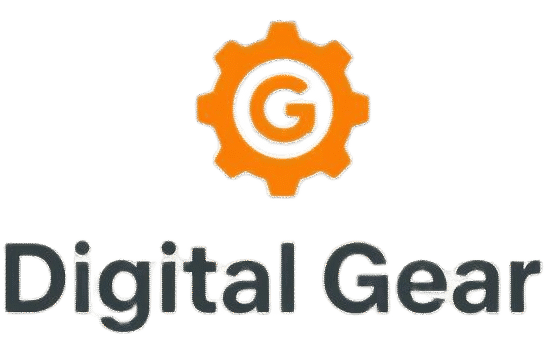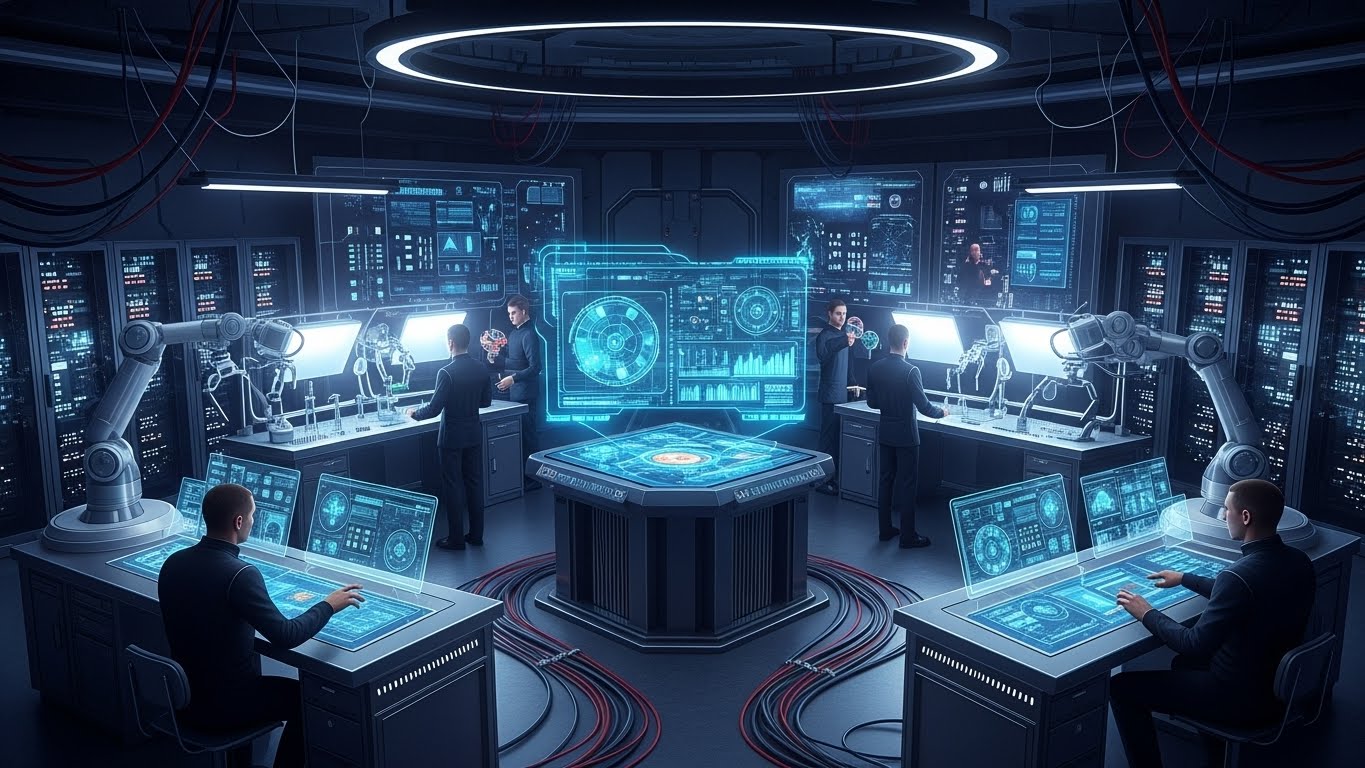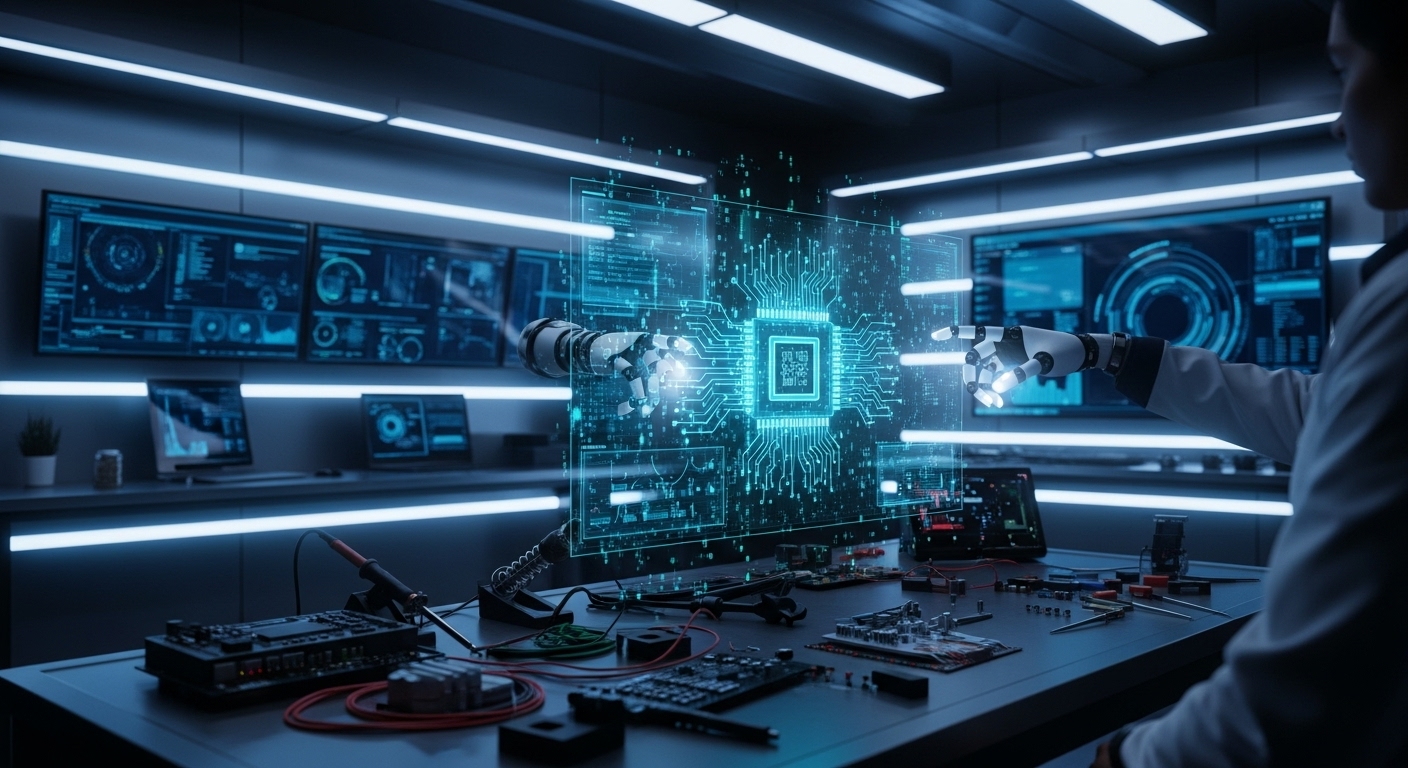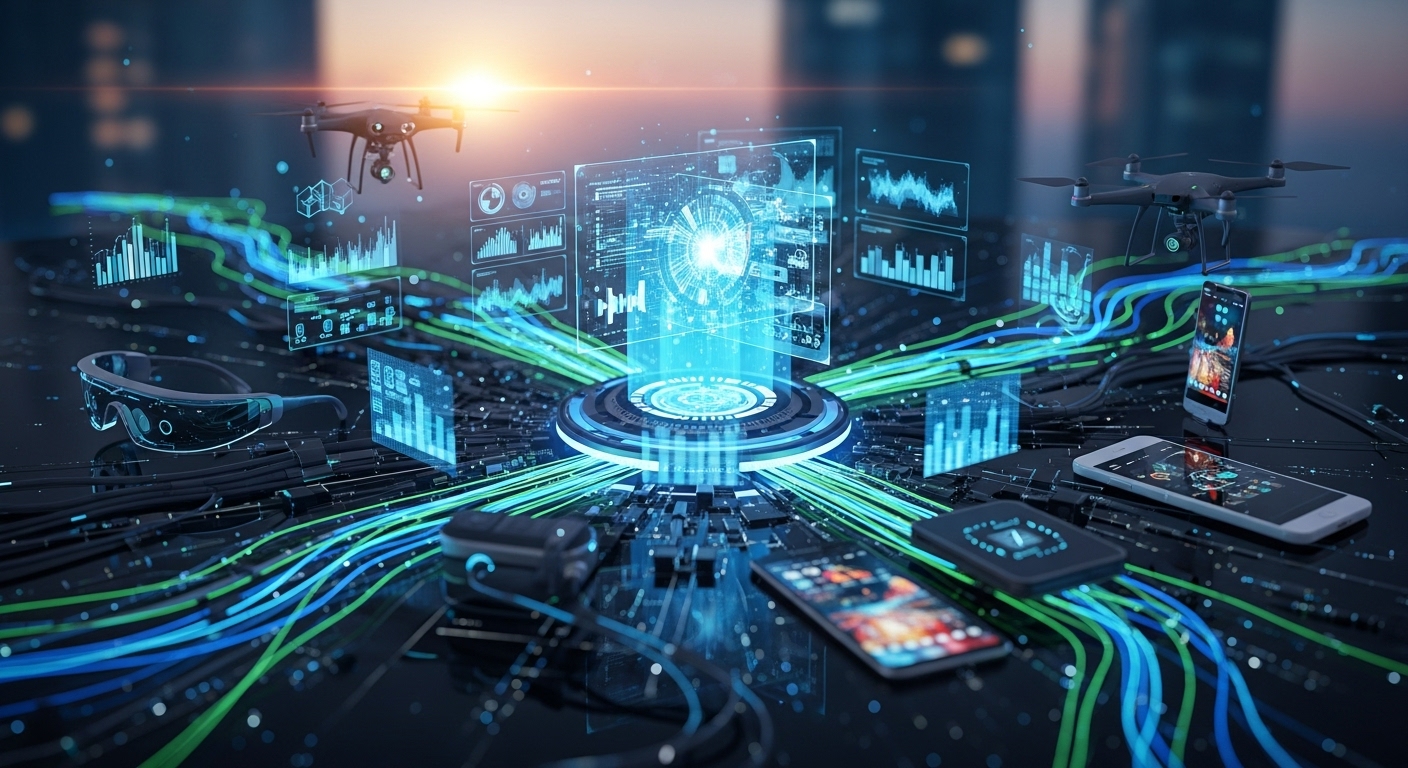In today’s fast-paced world, technological advancements are unfolding at lightning speed. From the rise of artificial intelligence to the growing prominence of quantum computing, the way we interact with the world around us is being reshaped. In this blog, we’ll take a deep dive into some of the most fascinating and transformative technologies that are poised to change the future. Whether it’s revolutionizing industries or enhancing our daily lives, these innovations are setting the stage for a new era of possibilities.
The Power of Artificial Intelligence: The Brain of Tomorrow’s World
Artificial Intelligence (AI) has been one of the most transformative technologies of the 21st century. Already, it has made significant strides in various fields, from autonomous vehicles to customer service chatbots. However, the true potential of AI is much more expansive.
AI’s ability to process large amounts of data and make decisions based on that data is revolutionizing industries like healthcare, finance, and entertainment. In healthcare, AI algorithms are being used to predict patient outcomes, analyze medical images, and even assist in robotic surgeries. In finance, AI-driven algorithms can detect fraud patterns and predict market trends more accurately than ever before.
As AI continues to evolve, its integration into everyday life will increase, offering personalized experiences and smarter systems that anticipate our needs before we even express them. But as AI becomes more intelligent, it will also raise critical questions about ethics, privacy, and decision-making—questions that society will need to address as the technology advances.
Quantum Computing: Unlocking Unprecedented Computational Power
Quantum computing represents a huge leap forward in our ability to process information. Unlike classical computers, which use binary bits to perform operations, quantum computers use quantum bits, or qubits, which can represent multiple states simultaneously. This gives quantum computers the ability to process and analyze data at speeds and complexities that traditional computers simply cannot match.
While quantum computing is still in its infancy, its potential is enormous. For example, in medicine, quantum computing could help scientists develop new drugs more quickly by simulating molecular interactions with unprecedented accuracy. In climate science, quantum computers could model complex systems, helping us better understand and address global environmental challenges.
However, building practical and stable quantum computers is a massive challenge. The quantum systems currently in development are incredibly sensitive to external factors, which makes them prone to errors. But as researchers continue to make breakthroughs, quantum computing could usher in a new era of problem-solving that we are only beginning to imagine.
The Rise of 5G: Speed, Connectivity, and New Possibilities
5G technology is set to be a game-changer, not just for mobile networks but for the entire digital ecosystem. Offering ultra-fast internet speeds, lower latency, and the ability to connect far more devices simultaneously, 5G will enable a whole new range of innovations.
For industries like healthcare, 5G will facilitate telemedicine by providing faster, more reliable connections for remote consultations and surgeries. In the world of entertainment, 5G will power the next generation of immersive experiences, including augmented and virtual reality (AR/VR), gaming, and live-streaming events.
Perhaps most significantly, 5G will fuel the growth of the Internet of Things (IoT), connecting billions of devices in homes, cities, and industries. From smart homes with connected appliances to entire smart cities optimized for efficiency, sustainability, and convenience, 5G will be the backbone that supports this interconnected world. With faster, more reliable connections, 5G will enable real-time communication between devices, revolutionizing how we interact with the world.
Blockchain Technology: Beyond Cryptocurrency
Blockchain is most commonly associated with cryptocurrencies like Bitcoin, but its potential goes far beyond digital currencies. At its core, blockchain is a decentralized ledger that allows transactions to be securely recorded without the need for a central authority. The security, transparency, and immutability of blockchain are opening up new possibilities across industries.
One of the most exciting uses of blockchain is in supply chain management. With blockchain, companies can track every step of a product’s journey, from raw materials to the final consumer. This ensures authenticity and ethical sourcing, while also providing consumers with a higher level of trust in the products they purchase.
In the healthcare industry, blockchain can offer better data management solutions, allowing for secure and seamless sharing of patient records between healthcare providers. Blockchain’s ability to create a transparent, tamper-proof record is also being explored in areas such as voting systems, digital identity, and intellectual property protection.
The decentralized nature of blockchain challenges traditional business models and creates new opportunities for innovation, transparency, and efficiency. As more industries adopt this technology, blockchain could fundamentally change how we interact with the digital world.
The Internet of Things: A World Where Everything is Connected
The Internet of Things (IoT) refers to the ever-growing network of devices that are connected to the internet and to each other. From smart refrigerators and wearables to connected cars and industrial machines, IoT is transforming how we live, work, and play.
At home, IoT devices are making our lives more convenient and efficient. Smart thermostats can learn your preferences and adjust the temperature accordingly, while smart security systems offer real-time alerts and remote monitoring. IoT-enabled fitness trackers allow individuals to monitor their health and well-being with real-time data.
In industries such as manufacturing and agriculture, IoT is helping to optimize processes and reduce costs. IoT sensors can monitor equipment performance, track inventory, and improve supply chain management. The connected devices collect and share data in real-time, allowing businesses to make more informed decisions and respond more quickly to changing conditions.
As IoT continues to expand, it will create an interconnected world where devices and systems communicate seamlessly to improve efficiency, convenience, and sustainability. The growth of IoT, however, also raises concerns about data privacy and security. As more devices become interconnected, ensuring the security of our personal data will become increasingly important.
Augmented Reality and Virtual Reality: Changing How We Experience the World
Augmented Reality (AR) and Virtual Reality (VR) are technologies that offer immersive experiences by blending or replacing the physical world with digital elements. While VR creates a completely virtual environment, AR overlays digital information onto the real world, enhancing our interactions with our surroundings.
In gaming and entertainment, VR has already created entirely new worlds for players to explore, offering a level of immersion that traditional video games cannot match. AR, on the other hand, is being used in applications such as interactive marketing, virtual try-ons for fashion, and even in medicine for surgeries and diagnostics.
As AR and VR technologies continue to evolve, they have the potential to transform industries beyond entertainment. In education, for example, AR can make learning more interactive and engaging, while VR can simulate real-world scenarios for hands-on training. In real estate, VR can offer virtual tours of properties, allowing potential buyers to experience homes and buildings remotely.
The Ethics of Emerging Technology: Balancing Progress with Responsibility
As we continue to push the boundaries of what technology can achieve, it’s important to consider the ethical implications of these innovations. While technologies like AI, blockchain, and IoT offer tremendous benefits, they also present new challenges related to privacy, security, and social impact.
AI, for example, raises concerns about algorithmic bias, the displacement of jobs, and the potential for mass surveillance. Blockchain’s decentralized nature could empower individuals, but it also raises questions about its use in illicit activities. IoT devices collect vast amounts of personal data, which could be vulnerable to hacking and misuse if not properly secured.
The rapid pace of technological innovation demands that we approach these developments with a sense of responsibility. Governments, businesses, and technologists must work together to establish ethical frameworks that ensure these technologies are used for the benefit of society, while minimizing potential harm.
Conclusion: A Future Driven by Technology
The technologies we are exploring today are shaping the world of tomorrow. From AI and blockchain to quantum computing and the Internet of Things, the possibilities for innovation are limitless. However, as we continue to embrace these new tools, we must also ensure that we are addressing the ethical, security, and societal challenges that come with them.
As we look ahead, it’s clear that technology will play an increasingly central role in our lives. By staying informed and proactive in shaping how these innovations are deployed, we can harness their potential to create a more connected, efficient, and sustainable world. The future of technology is bright, and the possibilities are only just beginning to unfold.




